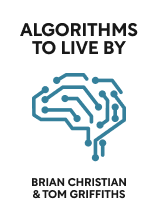

This article is an excerpt from the Shortform book guide to "Algorithms to Live By" by Brian Christian and Tom Griffiths. Shortform has the world's best summaries and analyses of books you should be reading.
Like this article? Sign up for a free trial here .
What do you do when faced with a difficult choice in life? Do you ever just make decisions at random?
Sometimes, the best way to make a difficult choice in life is to appeal to chance. By making a few random, intentionally suboptimal decisions, you can discover opportunities you couldn’t see before and get unstuck.
Here is why random decision-making is sometimes the best way to go.
The Power of Randomness
To move past dead ends, sometimes it makes sense to appeal to chance. Just like a traveler who points to a globe to decide where to live, computers act randomly when they don’t know what else to do. Such behavior seems like an irrational human quirk, but pure randomness has several unexpected uses.
A sufficient amount of randomness in your real-life problem-solving can lead you down paths you would have never chosen, some of which lead to greater success. In our dead-end job example, a random change, whether it be a new job or a new home, would force you out of your comfortable but unfulfilling local maximum and give you a chance to find a better “new normal.” Your living conditions may become temporarily worse, but unforeseen new opportunities to improve your life will hopefully leave you better off in the long run.
In How to Live, Derek Sivers says a fulfilling life is entirely built around randomness. Sivers argues that the world is already mostly random—we assume that the world is made up of countless series of causes and effects, but in reality, it’s mostly coincidences and chance. In the grand scheme of things, making your decisions randomly won’t take much away from your life.
Sivers points out that random decision-making lets you encounter valuable experiences that you never would have intentionally chosen. According to Sivers, these random experiences will transform you. You’ll no longer base your identity or self-worth on your career or the way you dress since you didn’t choose them.
In fact, he argues that by making your decisions randomly, you can live a life entirely without ego. You never need to worry about whether or not you’re making the responsible choice, or if you’re doing everything you can to ensure a good future. Instead, you’re free to live wholly in the present, enjoying life as it is instead of how it could be. This is an intentionally extreme argument—How to Live offers 27 extreme manifestos like this that all contradict one another, to show how no one guiding philosophy is capable of fully capturing the complexity of life. It probably wouldn’t be wise to make all your decisions randomly as Sivers recommends here, but it’s possible that adding randomness to your life in moderation will ease the burdensome expectations you put on yourself.

———End of Preview———
Like what you just read? Read the rest of the world's best book summary and analysis of Brian Christian and Tom Griffiths's "Algorithms to Live By" at Shortform .
Here's what you'll find in our full Algorithms to Live By summary :
- How to schedule your to-do list like a computer
- Why making random decisions is sometimes the smartest thing to do
- Why you should reject the first 37% of positions in your job search






